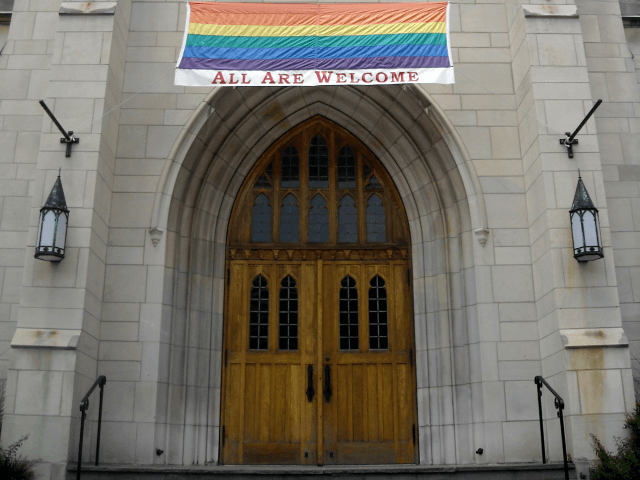New Church of England (CofE) guidance instructs parishes on how they should hold “celebratory” ceremonies to mark a person’s “transition” to the opposite sex.
Approved by the House of Bishops on Monday night, the pastoral guidance advises clergy to be “sensitive and creative” in incorporating the Affirmation of Baptismal Faith into church services which celebrate individuals embracing a new sexual identity.
“The Church of England welcomes and encourages the unconditional affirmation of trans people, equally with all people, within the body of Christ, and rejoices in the diversity of that body into which all Christians have been baptized by one Spirit,” asserts a statement published by the church Tuesday.
Transgender vicar Dr Rev Tina Beardsley hailed the move as a positive step, claiming that “many families are affected nowadays; a family member, a friend or a work colleague has undergone a transition.”
But the activist, whose social media activity revolves around the promotion of pro-LGBT causes, expressed disappointment over the church having stopped short of creating a whole new liturgy to mark transgender people’s decision to ‘change sex’.
The bishop of Blackburn and chair of the House of Bishops delegation committee, Julian Henderson, said: “We are absolutely clear that everyone is made in the image of God and that all should find a welcome in their parish Church.
“This new guidance provides an opportunity, rooted in scripture, to enable trans people who have ‘come to Christ as the way, the truth and the life’, to mark their transition in the presence of their Church family which is the body of Christ.”
However, Andrea Minichiello Williams, a lay member of the General Synod, blasted the new guidance for continuing the Church of England’s “devastating trajectory towards an outright denial of God and his word”.
The Christian Concern chief said in a statement: “The point of baptism is to identify a person with Jesus as they begin a life of following him. Using an affirmation of baptism to celebrate a gender transition turns this upside down by encouraging people to follow their own feelings and live in identities contrary to how God created them.
“The Bible, God’s revealed and perfect word, does not recognise postmodern gender theory,” Ms Minichiello Williams pointed out, urging CoE bishops to “teach faithfully on this issue and for the clergy to speak with love, compassion and truth.”
According to the evangelical organisation GAFCON’s Susie Leafe, nine bishops on the House of Bishops’ delegation committee bypassed the CoE’s governing body as it oversaw production of the document.
She told Premier Christian News: “The issue that we’ve got here is the repurposing of baptism liturgy; that is a major decision that the House of Bishops have made without the consultation of Synod and that doesn’t bode well for the future.”
Earlier this year, amidst fierce debate over proposals to remove barriers to legally changing gender the church came out in favour of allowing people to “self-identify” as the opposite sex — a move critics warn would put women at risk by giving men access to female-only spaces including changing rooms, prisons, and rape crisis centres.
The Reverend Dr Malcolm Brown, CoE director of mission and public affairs, said there was “no settled view about precisely which aspects of the legal [sex change] process are necessary” within the church, but stated: “We can say with some confidence that excessive bureaucracy… is neither welcoming nor affirming of transgender people in relation to the structures of the law and society at large.”

COMMENTS
Please let us know if you're having issues with commenting.